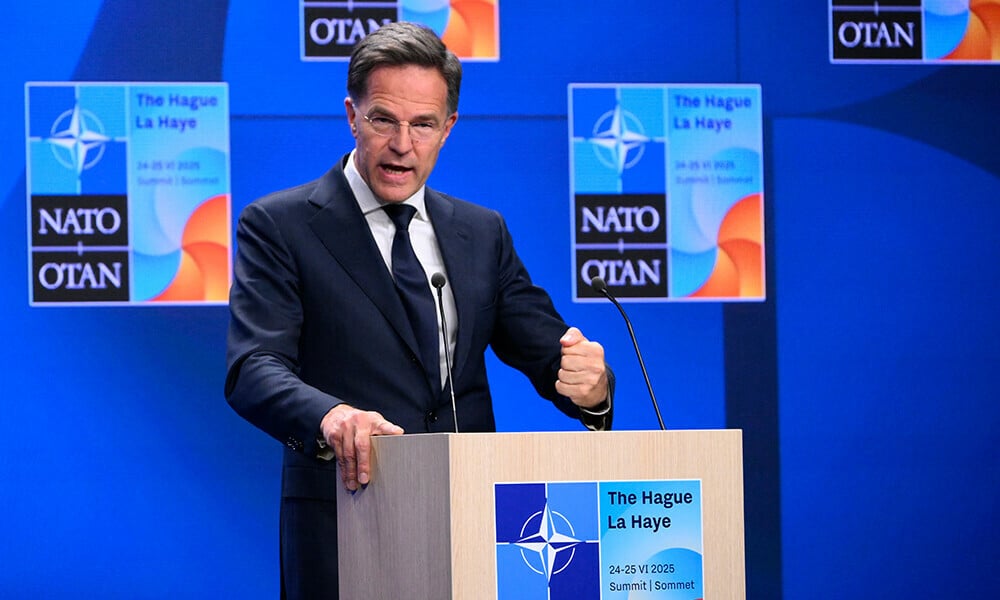News Flash
News Flash

THE HAGUE, June 23, 2025 (BSS/AFP) - NATO chief Mark Rutte on Monday said a
new defence spending pledge to be announced at a summit in The Hague was
fundamental for ensuring that the alliance can deter Russia.
US President Donald Trump has demanded that NATO allies commit to spending
five percent of their GDP on defence at their two-day gathering in The Hague,
starting on Tuesday.
"The defence investment plan that allies will agree in The Hague introduces a
new baseline, five percent of GDP to be invested in defence," Rutte said.
"This is a quantum leap that is ambitious, historic and fundamental to
securing our future."
The focus at the summit in the Netherlands will be on keeping Trump happy
after his return to power sparked fears that he could blow a hole in the
seven-decade-old alliance.
NATO's 32 allies have agreed to a compromise deal to dedicate at least 3.5
percent of GDP to core military needs by 2035, and 1.5 to broader security-
related items like cybersecurity and infrastructure.
Rutte said that Spain had not been granted an "opt-out" from the pledge,
despite Madrid claiming it had agreed it would not have to reach the headline
figure of five percent.
"NATO does not have as an alliance opt-outs, side deals, etcetera, because we
all have to chip in," Rutte said.
The NATO chief said that the increase in spending would see the alliance
boost its air defences five-fold and add thousands more tanks and armoured
vehicles to its arsenals.
"Our focus is ensuring that we have all we need to deter and defend against
any threat," he said.
"Of course, the most significant and direct threat facing this alliance
remains the Russian Federation."
Rutte insisted that the gathering in The Hague would also send a strong
signal of support to Ukraine -- despite Trump upending the West's stance
towards Russia's war.
Ukraine's President Volodymyr Zelensky will attend a state dinner with the
Dutch king but he has largely been sidelined from the summit's main event.
Rutte said that Europe was stepping up already to fill the gap left by
Washington pulling back from supporting Ukraine.
He said that Europe and Canada had already pledged 35 billion euros ($40
billion) to help arm Kyiv so far this year.